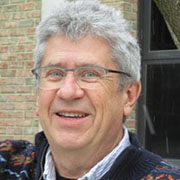A .gov website belongs to an official government organization in the United States.
A lock () or https:// means you've safely connected to the .gov website. Share sensitive information only on official, secure websites.

Climate simulations show that our carbon dioxide and methane emissions, primarily, have caused Earth to warm and that we must intervene and, essentially, eliminate the emissions to manage the warming and its consequences. Such a credible vision of our future is historically unique. Though the challenges are daunting, the simulations motivate us to take informed steps to influence the magnitude of the change that we will realize and manage the consequences.
New modeling strategies and modeling capacity are essential tools to take benefit of the knowledge provided by our future-climate projections. As the climate is and will be non-stationarity, the models will be providing information along a trajectory that is novel; they will provide information about trends and extremes. Questions of design, engineering, and management, which have for decades relied on historical environmental observations, will rest on trajectories described, first, by simulations. New questions of large-scale environmental intervention will emerge.
Current climate modeling capacity rests in institutions, most of which are focused on research. Community-wide, effective protocols anchor organizations such as the Coupled Model Intercomparison Project (CMIP), which provide simulation design criteria and facilitate integrated evaluations, descriptions of uncertainty, and interpretation of simulations. It supports a culture of model intercomparison projects that evaluate model performance using the body of climate observations. Models that have participated in CMIP have been evaluated and applied to a wide range of applications, some of which they were not originally designed.
It is argued here that in order to meet the challenges of a warming climate with its multitude of correlated consequences, new modeling strategies are needed. These strategies rely on models being designed for purpose and their guidance interpreted in context with observations, theory, and experiment to support science-based decision making. This talk highlights some of the lessons learned from our efforts to apply current models to adaptation and proffers potential design criteria for needed model capacity.
Richard (Ricky) Rood is professor emeritus of Climate and Space Sciences and Engineering at the University of Michigan in Ann Arbor. From 2015 to 2022, the National Oceanic and Atmospheric Administration (NOAA) engaged Professor Rood in strategic leadership positions for their emerging Unified Forecast System. He founded openclimate.org to accelerate the use of climate knowledge in planning and management. Prior to 2005, he held several leadership positions at NASA's Goddard Space Flight Center. He has been recognized with the NASA Exceptional Achievement Medal and NASA Outstanding Leadership Medal.
ALL Seminar attendees agree not to cite, quote, copy, or distribute material presented without the explicit written consent of the seminar presenter. Any opinions expressed in this seminar are those of the speaker alone and do not necessarily reflect the opinions of NOAA or CSL.